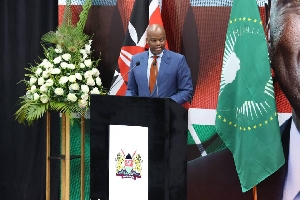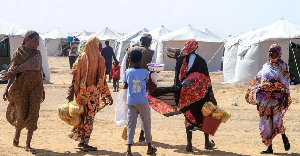Secretary-General of the Africa Continental Free Trade Area (AfCFTA), Wamkele Mene, has said the implementation of the AfCFTA presents Africa an opportunity to break away from economic colonialism.
According to him, with AfCFTA, people as well as goods and services can be moved freely across the continent and several jobs will be created for millions of young Africans.
Wamkele Mene further said smallholder farmers would be moved into the formal sector to boost the growth of businesses in Africa.
Speaking at the welcome ceremony of Kenya's President, Dr William Ruto, at the AfCFTA Secretariat, he said there would be food security in Africa if all trade barriers were removed.
Wamkele Mene said, "It (AfCFTA) presents unprecedented opportunities for our continent to continue to break the legacy of colonialism. The efforts to break colonialism as we all know started in May 1963 in Addis Ababa at the formation of the organization African Unity. We are therefore very poised, a continent of 1.4billion people with a combined GDP that is projected by the year 2050 to be close to US$16.2 trillion, we are well poised to be a single market that is globally competitive, has food security to feed herself by eliminating barriers to intra-Africa trade..."
"The AfCFTA is probably Africa's last opportunity to break down this colonial economic model to ensure that we have free movement of persons across the continent, to create jobs for millions of young Africans, to bring smallholder farmers into the formal trade of the African economy," he stated.
Currently, smallholder farmers in Kenya have added value to the tea produced locally and export these products to other African countries under the free trade agreement.
AfCFTA, one of the flagship projects of Agenda 2063 is a high-ambition trade agreement with a comprehensive scope that includes critical areas of Africa’s economy such as digital trade and investment protection, amongst other areas.
By eliminating barriers to trade in Africa, the objective of the free trade pact is to significantly boost intra-Africa trade, particularly trade in value-added production and trade across all sectors of Africa’s economy.
AfCFTA, which came into effect in January 2021, is the largest free trade area globally, covering 55 African countries with a combined population of 1.3 billion people and a combined Gross Domestic Product (GDP) exceeding $3.4 trillion.
The pact also seeks to help African economies build robust and more resilient economies to absorb any shock – internally or externally.
SA/NOQ
Business News of Friday, 5 April 2024
Source: www.ghanaweb.com













